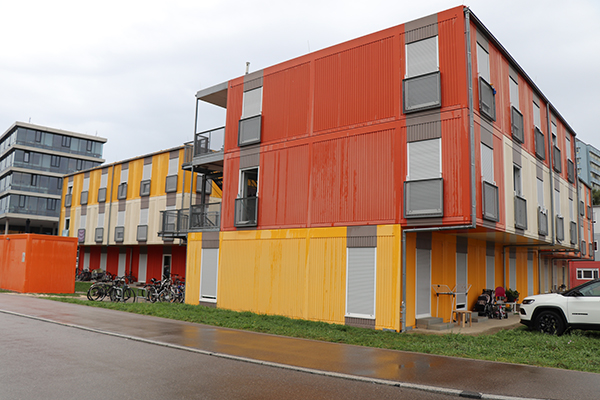By Oula Mahfouz and Arne Schick1
Vitamin D is a crucial nutrient for the formation and maintenance of healthy bones as it regulates the absorption of calcium, the main component of bones. It also influences numerous functions in the body’s cells that, for example, inhibit inflammation, protect against cell damage or support the immune system, muscle function and brain cell activity. Natural sources of vitamin D are limited, but we can absorb it from fatty fish or through the conversion of chemical substances in the skin under direct sunlight. The amount of vitamin D produced depends on several factors, including time of day, season, geographic location, skin color and lifestyle.
People with a higher risk of vitamin D deficiency can only absorb limited amounts, have difficulty absorbing it or have little exposure to sunlight. This is also the case for Muslim women who wear religious head coverings such as the hijab and niqab. Women who wear the hijab, a headscarf, cover their head, neck and shoulders. The niqab also covers the face. According to statistics, around one billion people worldwide suffer from vitamin D deficiency. A deficiency can lead to bone problems and increase the risk of fractures. In addition, deficiency is associated with various health problems such as pregnancy complications, multiple sclerosis, rheumatoid arthritis, diabetes and certain types of cancer. Vitamin D also affects skin and hair health. Studies show that vitamin D supplements can reduce symptoms of depression, as vitamin D plays an important neurological role.
Studies from Iraq and Jordan clearly show that wearing a hijab or niqab, which covers the head and face, can impair the supply of vitamin D, as this clothing restricts the absorption of sunlight. In sunny regions, women with hijab or niqab have higher deficiency rates than men. Women in sunless and colder regions such as Germany who wear hijab may suffer more from vitamin D deficiency. Vitamin D deficiency in mothers can have a negative impact on children’s health, especially during pregnancy and breastfeeding. Women with hijab must therefore take steps to ensure that their children are adequately supplied with vitamin D.
It is crucial to raise awareness of the importance of vitamin D and provide effective solutions in line with cultural and religious traditions. The basis for this is the broad communication of understandable and accurate information and appropriate health care. A first step for those affected is to have their vitamin D deficiency confirmed by a blood test by their family doctor and to be recommended a dosage for taking a vitamin D supplement.
1 Arne Schick (born 1996) is currently completing his Master’s degree at the Biochemical Institute (Department of Sports Nutrition) at the Cologne Sport University.
tun24010905
Ein Vitamin-D-Mangel sollte vom Arzt überprüft werden. Foto: tuenews INTERNATIONAL / Oula Mahfouz.
002302




